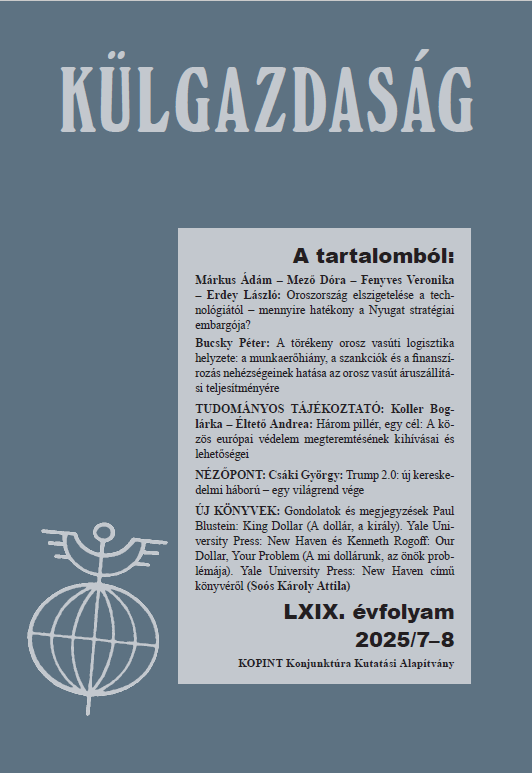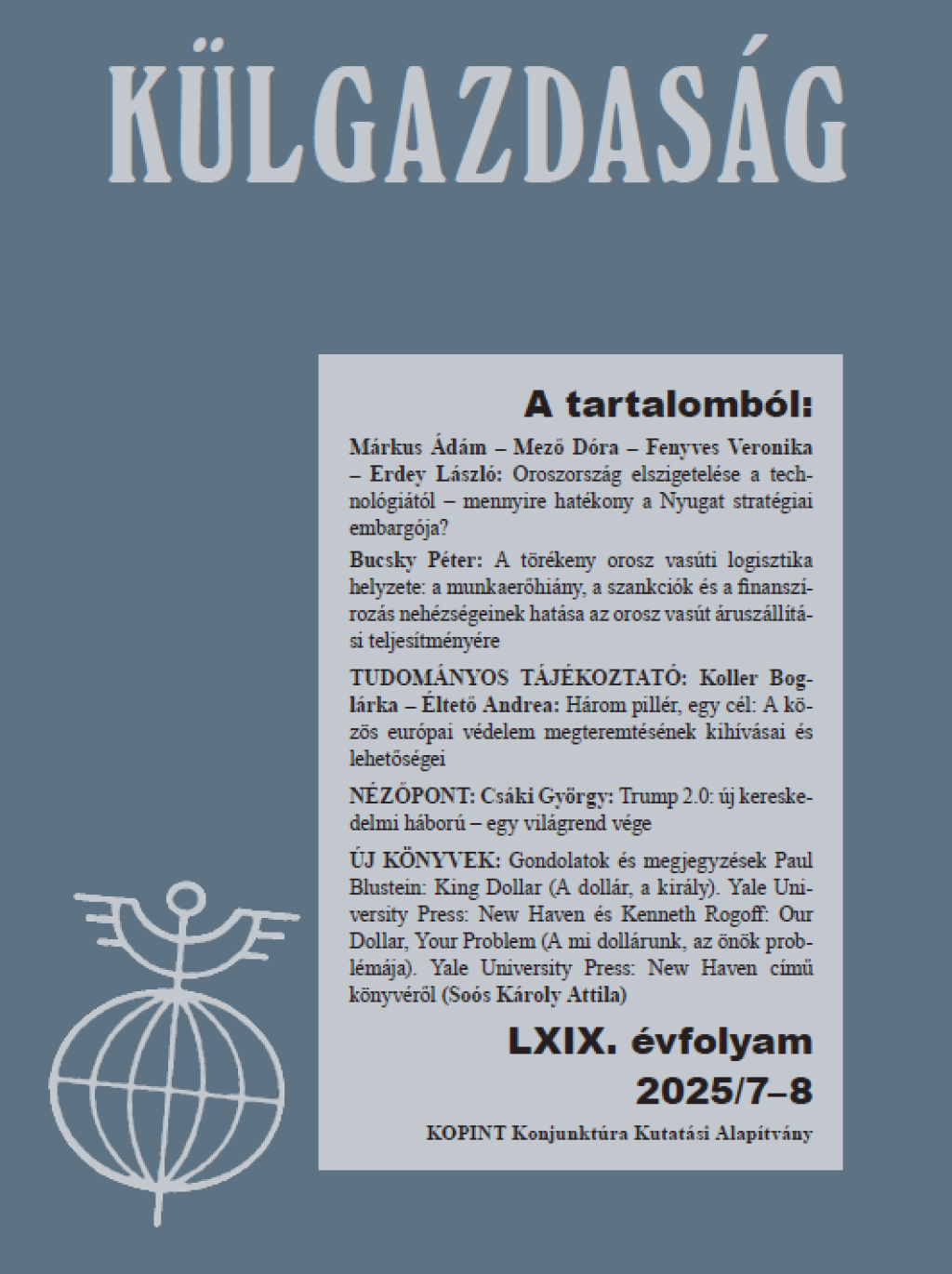The political and economic aspects and scenarios of differentiated European defence
Authors: Boglárka Koller and Andrea Éltető
In: Külgazdaság, LXIX. évf., 2025. július–augusztus (72–100. o.)
DOI: https://doi.org/10.47630/KULG.2025.69.7-8.72
Abstract
The article discusses the current challenges facing European defence policy, focusing on the possibilities for implementing a common defence strategy. There have been notable initiatives for unified defence since the beginning of Western European integration, but these have been mainly unsuccessful due to political, ideological, and sovereignty-related reasons. However, Russia’s annexation of Crimea in 2014 and its aggression against Ukraine in February 2022 have made it urgent to rethink an unified European defence strategy. The re-election of Donald Trump and the radical transformation of transatlantic relations have made it urgent to strengthen the European Union’s independent defence capabilities. Based on the concept of differentiated integration, the article examines a flexible approach to defence policy that allows for varying levels of commitment and cooperation between EU member states and third countries. The article also presents the defence policy, as well as its fiscal, industrial, and innovative aspects, emphasising the interrelationships between the three pillars. The article argues that the creation of a differentiated and integrated European defence policy is essential for strengthening the security and competitiveness of the European Union, this being the only way to preserve the achievements of integration in a changing global foreign policy and foreign economic environment.




